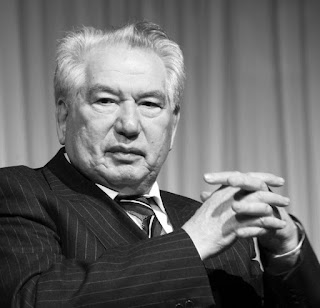27 января_группа5_урок6_день5_домашнее задание
Здравствуйте. Сегодня четверг 27января.
Вот ваше домашнее задание на пятницу 28января:
Speaking
Textbook
- ex. 41 p. 29
- ex. 43 p. 31 fill in the table
Workbook
- exe. 17-20 pp.28-30
- read grammar point on:
- Dative case for "experiencers" p. 32
- Expressing Age p. 34
Review Listening comprehension video 1
Reading
Stage 2 Part 2
- review vocabulary for stories on pp. 15 and 17 by rereading the articles and working with Cram
- preview vocabulary for stories on p. 19 (Ecotourism) and p. 21 (Monument in Moscow)
[look at the first word, then go to the body of the article and scan it for this word; once found - highlight/underline/put an asterisk* next to it. Repeat with the rest of the words.
vocab for the story on p. 19 about the Ecotourism is on p.20 and for story on p. 21 about the monument is on p. 22
Remember: we are not reading the stories, we are just searching for the words from the vocabulary list on pp. 20 and 22]
Владимир Мединский
Vladimir Medinsky was born July 18, 1970. He is a Russian political figure, academic and publicist who served as the Minister of Culture from May 2012 to January 2020. He is a member of the General Council of the United Russia party.
Views
- Medinsky has been described as a "nationalist enamoured of classicism and traditional values.
- Vladimir Medinsky supports the removal of Vladimir Lenin's body from the Lenin's Mausoleum to bury it.
- Medinsky believes that Stalin statues should be erected in places where the majority of local people are in favor.
- In 2013, Medinsky's Culture Ministry proposed an updated cultural policy blueprint. Calling for "a rejection of the principles of tolerance and multiculturalism", it emphasizes Russian "traditional values" and cautions against "pseudo-art" that may be at variance with those values.
- In 2015, Medinsky called for the creation of a Russian "patriotic Internet" to combat Western ideas, adding that those who are against Russia are against the truth.
- Medinsky's father was one of the Chernobyl liquidators.
Chinghiz Torekulovich Aitmatov was born on the 12 December 1928 and passed away on 10 June 2008. He was a Kyrgyz author who wrote mainly in Russian, but also in Kyrgyz. He is one of the best known figures in Kyrgyzstan's literature.
He was born to a Kyrgyz father and Tatar mother. Aitmatov's parents were civil servants in Sheker. In 1937, his father was charged with "bourgeois nationalism" in Moscow, arrested, and executed in 1938.
Aitmatov lived at a time when Kyrgyzstan was being transformed from one of the most remote lands of the Russian Empire to a republic of the USSR. The future author studied at a Soviet school in Sheker. He also worked from an early age. At fourteen, he was an assistant to the Secretary at the Village Counsel (сельский совет = сельсовет). He later held jobs as a tax collector, a loader, an engineer's assistant and continued with many other types of work.
In 1946, he began studying at the Animal Husbandry Division of the Kyrghyz Agricultural Institute in Frunze (now Bishkek), but later switched to literary studies at the Maxim Gorky Literature Institute in Moscow, where he lived from 1956-58. For the next eight years he worked for the main Soviet newspaper Pravda. His first two publications appeared in 1952 in Russian: "The Newspaper Boy Dziuio" and "Ашым." His first work published in Kyrgyz was "Ак Жаан" (White rain, 1954), and his well-known work "Jamila" (Джамила) appeared in 1958.
1980 saw his first novel "The Day Lasts More than a Hundred Years" (И дольше века длится день). "The Day Lasts More than a Hundred Years" and other writings were translated into several languages. Some of his stories were filmed, like "The First Teacher" in 1965, "Jamila" in 1969, and "Red Scarf" (1970) as "The Girl with the Red Scarf "(1978).
As many educated Kyrgyzs, Aitmatov was fluent in both Kyrgyz and Russian. As he explained in one of his interviews, Russian was as much of a native language for him as Kyrgyz. Most of his early works he wrote in Kyrgyz; some of these he later translated into Russian himself, while others were translated into Russian by other translators. Since 1966, he was writing in Russian
In addition to his literary work, Chinghiz Aitmatov was first the ambassador for the Soviet Union and later for Kyrgyzstan, to the European Union, NATO, UNESCO and the Benelux countries.
Aitmatov suffered kidney failure, and on 16 May 2008 was admitted to a hospital in Nuremberg, Germany, where he died of pneumonia on 10 June 2008 at the age of 79. After his death, Aitmatov's remains were flown to Kyrgyzstan, where there were numerous ceremonies before he was buried in Ata-Beyit cemetery.
His obituary in The New York Times characterized him as "a Communist writer whose novels and plays before the collapse of the Soviet Union gave a voice to the people of the remote Soviet republic of Kyrgyz" and adds that he "later became a diplomat and a friend and adviser to the Soviet leader Mikhail Gorbachev."






Comments
Post a Comment